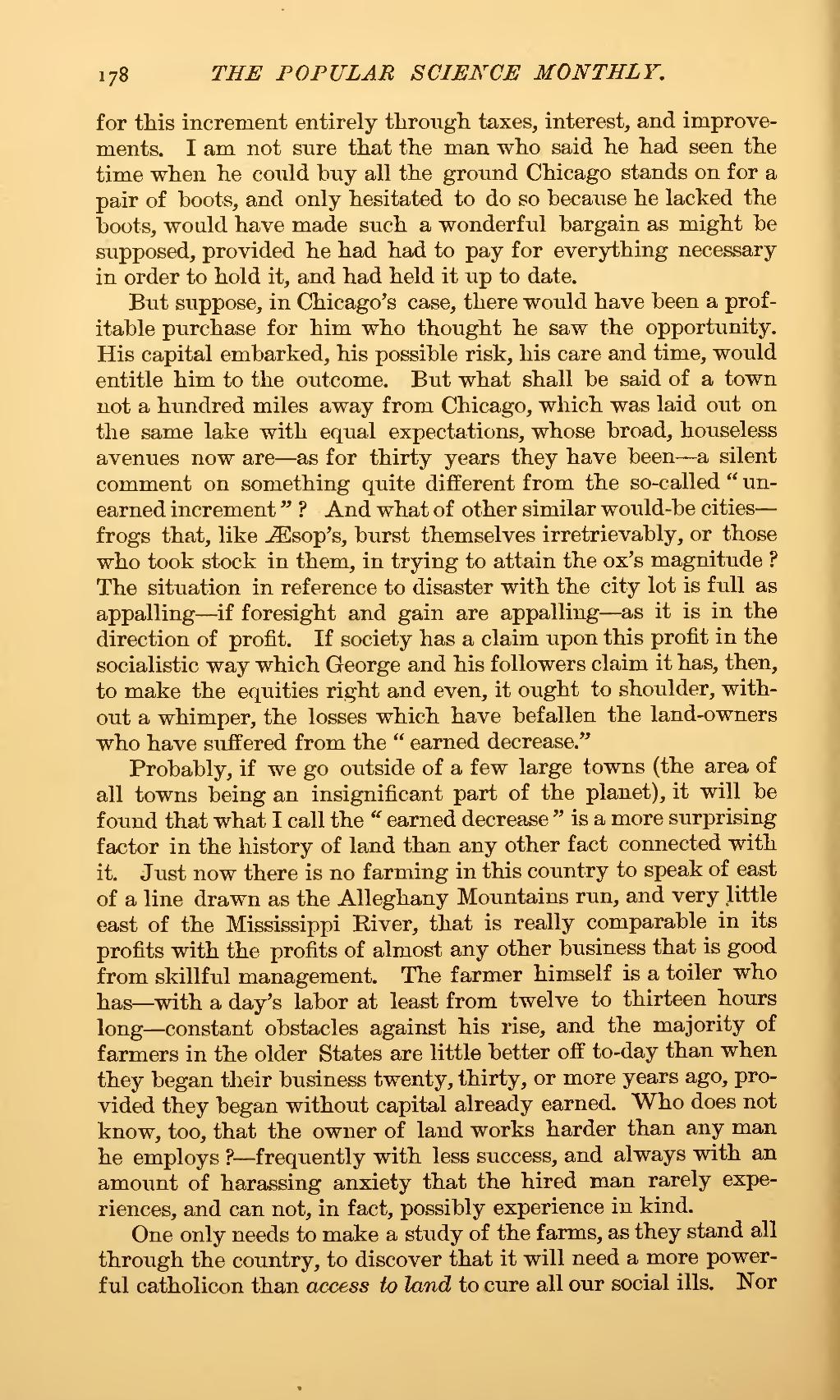for this increment entirely through taxes, interest, and improvements. I am not sure that the man who said he had seen the time when he could buy all the ground Chicago stands on for a pair of boots, and only hesitated to do so because he lacked the boots, would have made such a wonderful bargain as might be supposed, provided he had had to pay for everything necessary in order to hold it, and had held it up to date.
But suppose, in Chicago's case, there would have been a profitable purchase for him who thought he saw the opportunity. His capital embarked, his possible risk, his care and time, would entitle him to the outcome. But what shall be said of a town not a hundred miles away from Chicago, which was laid out on the same lake with equal expectations, whose broad, houseless avenues now are—as for thirty years they have been—a silent comment on something quite different from the so-called "unearned increment"? And what of other similar would-be cities—frogs that, like Æsop's, burst themselves irretrievably, or those who took stock in them, in trying to attain the ox's magnitude? The situation in reference to disaster with the city lot is full as appalling—if foresight and gain are appalling—as it is in the direction of profit. If society has a claim upon this profit in the socialistic way which George and his followers claim it has, then, to make the equities right and even, it ought to shoulder, without a whimper, the losses which have befallen the land-owners who have suffered from the "earned decrease."
Probably, if we go outside of a few large towns (the area of all towns being an insignificant part of the planet), it will be found that what I call the "earned decrease" is a more surprising factor in the history of land than any other fact connected with it. Just now there is no farming in this country to speak of east of a line drawn as the Alleghany Mountains run, and very little east of the Mississippi River, that is really comparable in its profits with the profits of almost any other business that is good from skillful management. The farmer himself is a toiler who has—with a day's labor at least from twelve to thirteen hours long—constant obstacles against his rise, and the majority of farmers in the older States are little better off to-day than when they began their business twenty, thirty, or more years ago, provided they began without capital already earned. Who does not know, too, that the owner of land works harder than any man he employs?—frequently with less success, and always with an amount of harassing anxiety that the hired man rarely experiences, and can not, in fact, possibly experience in kind.
One only needs to make a study of the farms, as they stand all through the country, to discover that it will need a more powerful catholicon than access to land to cure all our social ills. Nor
